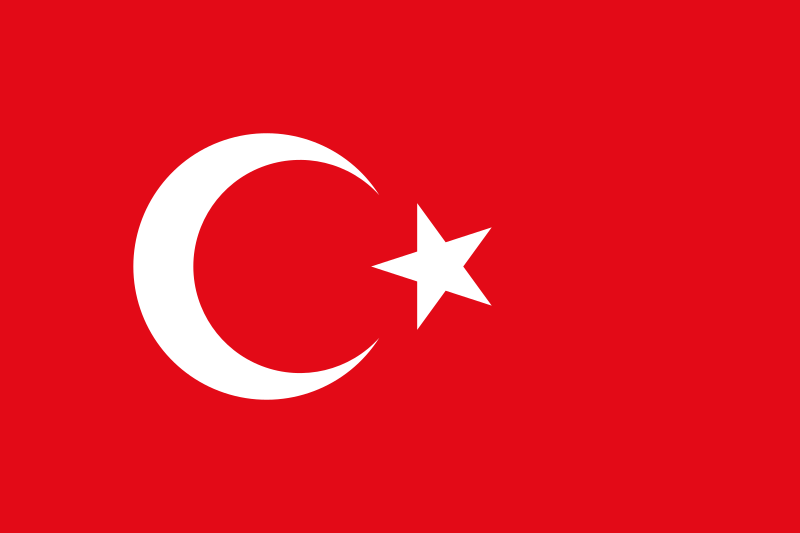 Turkey (Turkish: Türkiye), known officially as the Republic of Turkey ( Türkiye Cumhuriyeti), is a Eurasian country that stretches across the Anatolian peninsula in western Asia and Thrace (Rumelia) in the Balkan region of southeastern Europe. Turkey is one of the six independent Turkic states.
Turkey (Turkish: Türkiye), known officially as the Republic of Turkey ( Türkiye Cumhuriyeti), is a Eurasian country that stretches across the Anatolian peninsula in western Asia and Thrace (Rumelia) in the Balkan region of southeastern Europe. Turkey is one of the six independent Turkic states.
Turkey is bordered by eight countries: Bulgaria to the northwest; Greece to the west; Georgia to the northeast; Armenia, Azerbaijan (the exclave of Nakhchivan) and Iran to the east; and Iraq and Syria to the southeast. The Mediterranean Sea and Cyprus are to the south; the Aegean Sea to the west; and the Black Sea is to the north. The Sea of Marmara, the Bosphorus and the Dardanelles (which together form the Turkish Straits) demarcate the boundary between Eastern Thrace and Anatolia; they also separate Europe and Asia.
Turks began migrating into the area now called Turkey (“land of the Turks”) in the eleventh century. The process was greatly accelerated by the Seljuk victory over the Byzantine Empire at the Battle of Manzikert. Several small beyliks and the Seljuk Sultanate of Rûm ruled Anatolia until the Mongol Empire’s invasion. Starting from the thirteenth century, the Ottoman beylik united Anatolia and created an empire encompassing much of Southeastern Europe, Western Asia and North Africa. After the Ottoman Empire collapsed following its defeat inWorld War I, parts of it were occupied by the victorious Allies. A cadre of young military officers, led by Mustafa Kemal Atatürk, organized a successful resistance to the Allies; in 1923, they would establish the modern Republic of Turkey with Atatürk as its first president.
Turkey’s location at the crossroads of Europe and Asia makes it a country of significant geostrategic importance.
The predominant religion in Turkey is Islam with small minorities of Christianity and Judaism. The country’s official language is Turkish, whereas Kurdish andZazaki languages are spoken by Kurds and Zazas which comprise 18% of the population.
Turkey is a democratic, secular, unitary, constitutional republic, with an ancient cultural heritage. Turkey has become increasingly integrated with the West through membership in organizations such as the Council of Europe, NATO, OECD, OSCE and the G-20 major economies. Turkey began full membership negotiations with the European Union in 2005, having been an associate member of theEuropean Economic Community since 1963 and having reached a customs union agreement in 1995. Turkey has also fostered close cultural, political, economic and industrial relations with the Middle East, the Turkic states of Central Asia and the African countries through membership in organizations such as the Organisation of the Islamic Conference and Economic Cooperation Organization. Given its strategic location, large economy and army, Turkey is classified as a regional power.

Notes from Wikipedia








